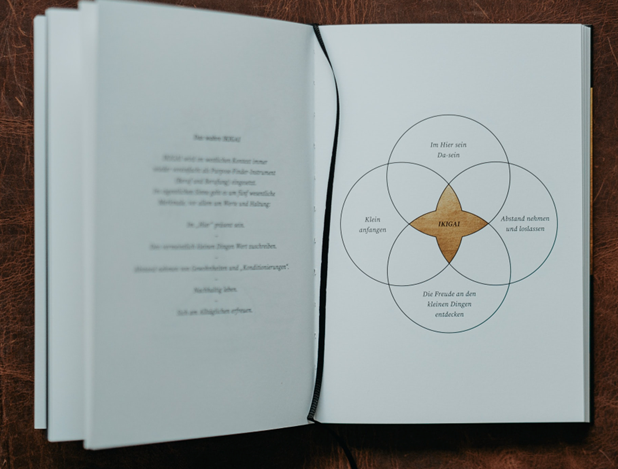In our fast-paced, ever-evolving world, it can be easy to lose sight of what really matters.
However, ikigai can help you bring more meaning and purpose into your life. The Japanese philosophy provides valuable guidance on achieving balance and living a meaningful life.
Ikigai is a powerful concept that has been gaining traction in recent years, providing people with an effective way to find meaning and purpose in their lives. It's no surprise that people are increasingly turning to ikigai to improve their overall well-being and happiness.
In this article, we explore the power of ikigai to recession-proof your business and provide readers with simple steps to apply it in their own lives.
The Origin of Ikigai
Ikigai is an ancient Japanese concept that can be used to live a meaningful and fulfilling life. It translates roughly to "reason for being" or "reason to wake up in the morning" and is based on the idea that everyone has something they are passionate about. By understanding our ikigai, we can use it as a compass for personal growth and development.
The concept of ikigai originates from Okinawa, Japan, where it was believed that having an "ikigai" creates a sense of purpose, joy, and contentment. It can be traced back to the 12th century when it was part of Zen Buddhism teachings.
In Japan, ikigai refers to finding your place in life and recognizing the intersection of four qualities: what you love, what you are good at, what society needs from you, and what you can make money from doing. These four points create your ikigai, giving direction and structure to your life journey.
The Ikigai Diagram: A Philosophical Perspective
The ikigai diagram has been gaining immense popularity as a tool to help individuals find meaning in their lives. It is a visual representation of the four essential components necessary to live a meaningful and fulfilling life.
The diagram consists of four intersecting circles: passion, profession, mission, and relationships. Each circle represents an essential factor that contributes towards finding ikigai in life. Let's examine each circle and what it entails:
- Passion – The first circle is in the center of the diagram. Passion can be defined as activities performed with joy and enthusiasm. When we do something we love, connecting with others and our surroundings becomes easy.
- Profession – The second circle is the profession. This circle represents our job or career and how it contributes to society. It also considers whether or not our job is aligned with our passion.
- Mission – The third circle stands for activities that contribute to a greater cause beyond ourselves. In other words, our work serves to make the world a better place. This can be accomplished in many ways, including giving back to humanity and contributing to the greater good.
- Relationships – The fourth circle refers to the bonds we share with family, friends, and society. Relationships are about connecting with others through shared experiences, memories, and feelings. They can be romantic or platonic and involve family members, friends, or colleagues. Nurturing them by investing time and energy in your connections with those around you is important.
How to Discover Your Ikigai?
The idea of ikigai has been around for centuries in Japanese culture, but the term itself was only coined recently.
Ikigai is a concept that refers to having a purpose in life and finding fulfillment in daily activities. It can be found through meaningful work, relationships, hobbies, spiritual growth, and more. Finding your personal ikigai can be an enlightening experience that leads to greater satisfaction and joy in everyday life.
Here is how you can discover your ikigai:
1. Reflect on What's Important to You
Take time away from your usual routine to reflect on what's important to you. Ask yourself questions like "What brings me joy?" or "What am I passionate about?" and think about the answers.
2. Write Down the Thoughts That Come to You
Second, write down your answers in a journal and any other thoughts that come to mind. You may find that you've been thinking about these things without realizing it!
Another way is to create a list of what you enjoy and are good at. Then, write down what you could do to use your skills and interests more. For example, why not start a baking business if you love baking cakes?
3. Think About the Effect of These Activities on Your Life
Think about how your life would feel if you did things that brought you joy and used your strengths. What would that be like? How would it make you feel?
The more you think about what your life might be like if you did things that bring you joy and use your strengths, the more likely you'll find a career path to follow.

Challenges While Discovering Ikigai
Discovering your ikigai — or "reason for being" — can be a powerful way to live a meaningful life. But the journey towards finding this purpose isn't always easy. Let's look at some challenges that many people face while attempting to discover their ikigai:
1. Understanding the True Meaning of Ikigai
The first challenge is understanding its true meaning and purpose. Ikigai is more than just having a job or hobby; it's about uncovering what brings you joy and fulfillment in life. It requires deep reflection on who you are and what you value most.
2. Realizing That Discovery Takes Trial and Error
Another challenge is recognizing that not all paths lead to an immediate discovery of your ikigai, which means it may take some trial and error before uncovering it. When we are not sure what our ikigai is, our life feels like a long and uncertain journey. However, when we know our purpose in life, it is as if the world opens up to us.
3. Overcoming Fears of Success or Failure
Lastly, the challenge is discovering and pursuing your ikigai, which often means overcoming fears of success or failure.
Let's look at the example of a famous basketball player, Ichiro Suzuki. His ikigai was batting fourth for his team, and although he accumulated more than 3,000 hits in his career, Suzuki said he was afraid of failure when he started.
Suzuki was afraid that he would never get a hit. But, little by little, he realized that he could do it. By pursuing his Ikigai, he developed the right amount of skill and hard work to succeed.
The Takeaway
Living a meaningful life is something that every person should strive for. And though finding your purpose in life can be difficult, it's not impossible. The concept of Ikigai can help you identify and pursue what brings you joy and fulfillment.
With Ikigai, you can focus on pursuing activities that bring joy and satisfaction while reflecting on your values and beliefs.
Simon Reilly is a consultant, speaker, and author with Leading Advisor and a contributing columnist for Advisor Today.






.png)
.png)


.png?width=300&height=600&name=Tax%20Talk%20Graphic%20-%20email%20tower%20(300%20x%20600%20px).png)
